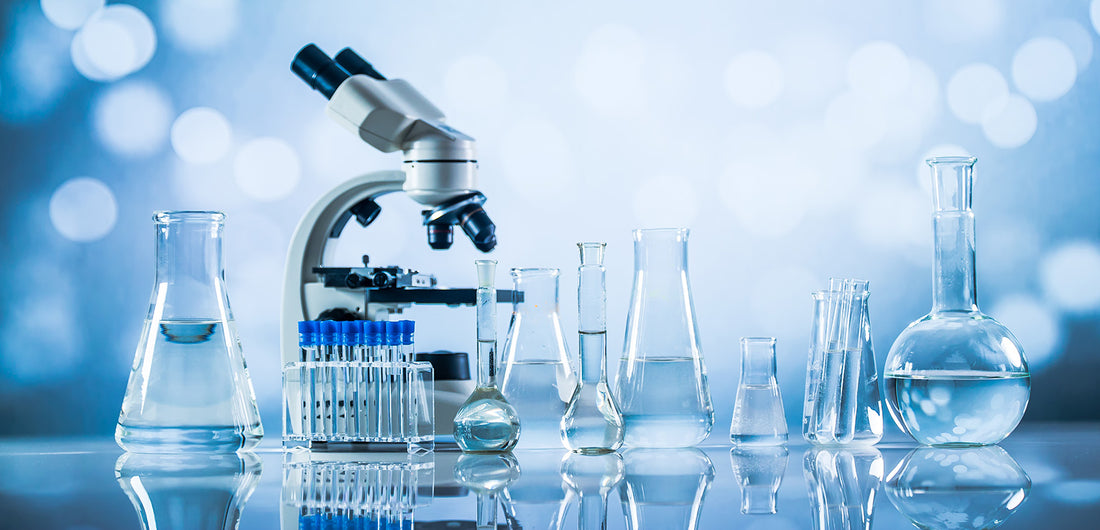
Shocking Truth About Parabens: Are Your Daily Products Putting You at Risk?
Share
Parabens are a group of synthetic compounds widely used as preservatives in cosmetics, pharmaceuticals, and food products to prevent the growth of harmful bacteria and mold. Despite their long-standing use, parabens have become a contentious topic, with debates centering on their safety and potential health impacts. This article delves into the facts and myths surrounding parabens to provide a clear understanding of what they are and their implications for health.
What Are Parabens?
Parabens are esters of para-hydroxybenzoic acid. The most common types used in consumer products are methylparaben, ethylparaben, propylparaben, and butylparaben. They are valued in the industry for their ability to extend the shelf life of products by preventing microbial contamination.
The Controversy
The controversy around parabens primarily stems from studies suggesting they may disrupt endocrine function, mimicking estrogen and potentially leading to health issues such as breast cancer and reproductive toxicity. However, it's essential to consider the evidence and context of these findings.
Studies and Regulations
- Endocrine Disruption Concerns: Some studies have shown that parabens can mimic estrogen in lab settings, which raised concerns about their potential role in hormone-related cancers. However, these studies often involve concentrations far higher than those typically found in consumer products.
- Regulatory Stance: Regulatory bodies such as the U.S. Food and Drug Administration (FDA) and the European Commission's Scientific Committee on Consumer Safety (SCCS) have conducted reviews of the available evidence. Both have concluded that parabens, as currently used in cosmetics, are safe. The SCCS, for instance, set concentration limits for parabens in products to ensure consumer safety.
- Research Limitations: Many of the alarming studies are based on animal testing or in vitro (test tube) experiments. Translating these findings to real-world human exposure is complex, and current scientific consensus holds that parabens in low concentrations do not pose significant health risks.
Debunking Myths
- "Parabens Cause Cancer": The most pervasive myth is that parabens cause cancer. While parabens have been detected in breast tissue, no direct causal link has been established. The presence of a substance does not equate to it being a cause of disease.
- "All Parabens Are Harmful": Not all parabens are created equal. Regulatory bodies have identified certain parabens, like isopropylparaben and isobutylparaben, which are not widely used and have stricter guidelines due to their potential higher risk. However, the common ones like methylparaben and ethylparaben are deemed safe in low concentrations.
- "Natural Preservatives Are Always Better": The natural versus synthetic debate often positions parabens as "bad" due to their synthetic nature. However, natural preservatives are not always safer or more effective. Some can cause allergic reactions or are less effective in preventing microbial growth, leading to spoiled products that pose their own health risks.
Making Informed Choices
Consumers today are more informed and cautious about product ingredients. Here are some tips to navigate the paraben debate:
- Read Labels: Understanding product labels and knowing the types of parabens used can help you make informed decisions. Products often list these preservatives towards the end of the ingredient list, indicating their low concentration.
- Consider Your Exposure: The actual risk of parabens comes from cumulative exposure. If you're concerned, you can opt for paraben-free products, particularly for items used frequently like lotions and sunscreens.
- Trust Science-Based Sources: Rely on information from reputable sources such as regulatory bodies and peer-reviewed journals. Be cautious of sensationalized claims that lack scientific backing.
Conclusion
Parabens have been used for decades and continue to be a safe and effective preservative in many products. While it is wise to remain informed and cautious about the ingredients in our products, it is equally important to base our choices on solid scientific evidence rather than fear. The current consensus among regulatory bodies and scientists is that parabens, when used within recommended limits, pose no significant risk to human health. By staying informed and critical of the sources of our information, we can make better choices for our health and well-being.
Paraben-Free Alternatives
For those looking to avoid parabens in their daily routine, there are many paraben-free options available on the market. One such option is Sustiq Laundry Detergent Sheets. These detergent sheets are not only paraben-free but also offer a convenient and eco-friendly alternative to traditional liquid detergents. You can purchase Sustiq Laundry Detergent Sheets on our website, Amazon, and Walmart. Opting for paraben-free products like these can help reduce your overall exposure to synthetic preservatives while still ensuring effective and safe cleaning for your household.

